I've had a few days to live with the Magic Leap One, and it's time to finally weigh in with some thoughts as someone who has been tracking this company from the beginning, for almost five years now.
Let's get right to the meat of the matter: Magic Leap One is not a flop. Not regarding sales (the target, for now, is developers), and not in terms of performance and overall experience. This is the best augmented reality I've seen, full stop.
Does it live up to the hype that the company's CEO Rony Abovitz stoked for years? No. But I never bought that hype. A few years ago, when I met with the company in my old office in Manhattan, I spent a couple of hours grilling them about how the device worked, what it looked like, and how it might perform. In hindsight, some of the answers turned out to be accurate, and others, not so much. Around that time, I was in the process of immersing myself deeper in VR and how it worked, and what was and wasn't possible on a technical level.
Later, it didn't take long for me to become intimately familiar with the HoloLens, as well as other, lower-end AR headsets and mobile apps. Because of this, sometime around early 2017, I determined that, whatever NDA-locked people were saying about Magic Leap, it would likely be, at best, just a better version of the HoloLens. That was well over a year ago, having had no direct contact with the device. My expectations were set: If Magic Leap was at least significantly better than the HoloLens, then we were at least moving forward. Anything more would have been a surprise bonus in my view.
My point is, if you bought into Magic Leap's massive hype, it's your fault for not doing more research into the state of the art of immersive computing. If you look around, many developers who work daily on VR and AR are absolutely happy with the Magic Leap One (maybe not happy with the price, but that's a different matter). They know what they're holding in their hands. Many sideline critics (some of whom haven't even tried it yet) are gleefully hitting Magic Leap for lackluster reviews. But the harshest of those reviews speak more to the hype generated by Magic Leap, versus the more realistic, incremental step the company's device represents.
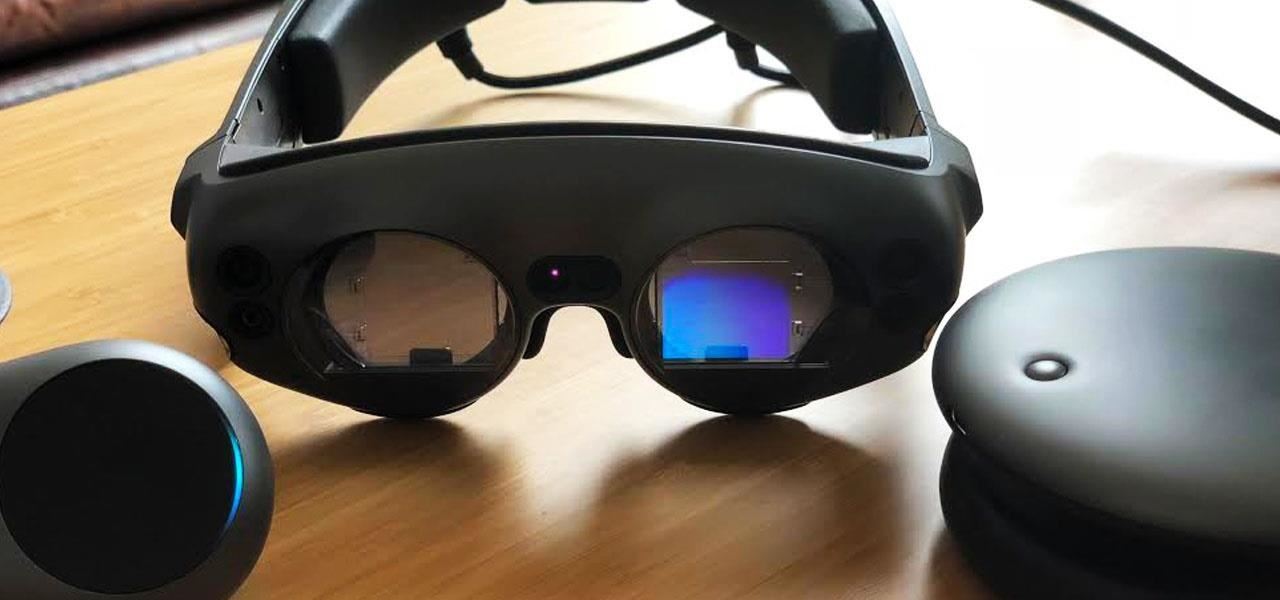
Sure, I was entirely "ready" to be surprised and blown away by something totally unexpected in the Magic Leap One, but I didn't "expect" to be taken by surprise. I live for this stuff. VR and AR are my obsessions. So if I had been surprised, I wouldn't have just been surprised, I would have astounded. I suspect many VR and AR veterans had the same, more realistic expectations, and that's why you're seeing them all over Twitter enjoying their Magic Leap One devices.
No, this is not a mainstream consumer hit-level product. It's just too new in so many ways, even for VR and AR veterans. I'm still figuring out how to get the best experience out of it myself. But as a first-generation device, the Magic Leap One is an incredibly polished and sophisticated experience, from hardware to software. That said, in contrast, the HoloLens AR experience features ghostly, translucent images, and such a tiny field of view (30 degrees horizontal and 17 degrees vertical) that, for me, it's hard to remain interested in looking for the virtual objects and interfaces peeking out from the tiny visual porthole.
However, with the Magic Leap One, the virtual objects are stunningly clear and crisp, in many cases looking about as real as they might in VR, which is huge. The spatial audio is also more effective, adding to the sense of immersion. Also, the Magic Leap One has a larger field of FoV (40 degrees horizontal, 30 degrees vertical), which takes the AR headset experience from experiment to actually usable for long stretches of time. I can easily see myself watching long-form videos and interacting other 3D content using this device.
Still, those who have dinged the Magic Leap One's FoV are right, it really limits the full sense of immersion you get in VR, and that hindrance is what makes it more like a much better HoloLens than an entirely new category of device. Like some others, the Magic Leap One didn't "blow me away," but knowing how hard it was to do this (remember, no one else has at this level, yet), I was impressed.
- Don't Miss: A Close-Up Look at the Magic Leap One's Optics
Over the coming days and weeks, we'll reveal more about the device as we test its apps and show you more of what the experience looks like. But beyond the device itself, the question many still have is whether or not this was worth several billion in investment. Well, that's a question only the market can truly answer, but as it stands now, Magic Leap's fate is mostly in the hands of developers, and a small group of developers at that.
Aside from only being available in six cities, the $2,300 price tag will simply be too high for all but the most successful, cash flow positive developers who can afford to take the time and money risk on a new device that doesn't have an audience yet (and may, possibly, never garner a significant user base). Major partnerships with media and entertainment studios are great, but until this is a truly consumer-friendly device, the Magic Leap One is at the mercy of the reliably finicky developer community.
But there's one more thing Magic Leap has to worry about: Apple Glasses, those rumored AR smartglasses Apple is almost certainly working on, possibly coming as soon as 2021. Apple Glasses aren't here yet, but now that the magic trick has been pulled off by Abovitz, leaving some unimpressed, or simply uninterested, many have already begun turning their attentions to counting down the months and years until Apple Glasses come to eat everyone's AR lunch.
Abovitz is already promising a second, better version of the Magic Leap device in the future, but for that to matter it will have to be far better than Microsoft's HoloLens 2.0, which is coming in 2019. Microsoft may move slowly, but it's a fast learner, and now that it has seen and likely used the Magic Leap One, we can expect the next HoloLens to be a beast.
But it's not all gloom and doom for Magic Leap. Users appear to be incredibly happy with the device, and we'll likely start seeing some truly stunning creations in the coming weeks and months. Nevertheless, Magic Leap no longer has the element of surprise. We now know what it is, and what it isn't. Therefore, moving forward, any "magic" promised by Abovitz will need to be truly transcendent versus the competition, because the Apple Glasses countdown has begun, and its shadow looms over the entire AR industry, Magic Leap included.
- Follow Next Reality on Facebook, Twitter, Instagram, YouTube, and Flipboard
- Sign up for our new Next Reality newsletter
- Follow WonderHowTo on Facebook, Twitter, Pinterest, and Flipboard
Cover via Magic Leap
Just updated your iPhone? You'll find new emoji, enhanced security, podcast transcripts, Apple Cash virtual numbers, and other useful features. There are even new additions hidden within Safari. Find out what's new and changed on your iPhone with the iOS 17.4 update.
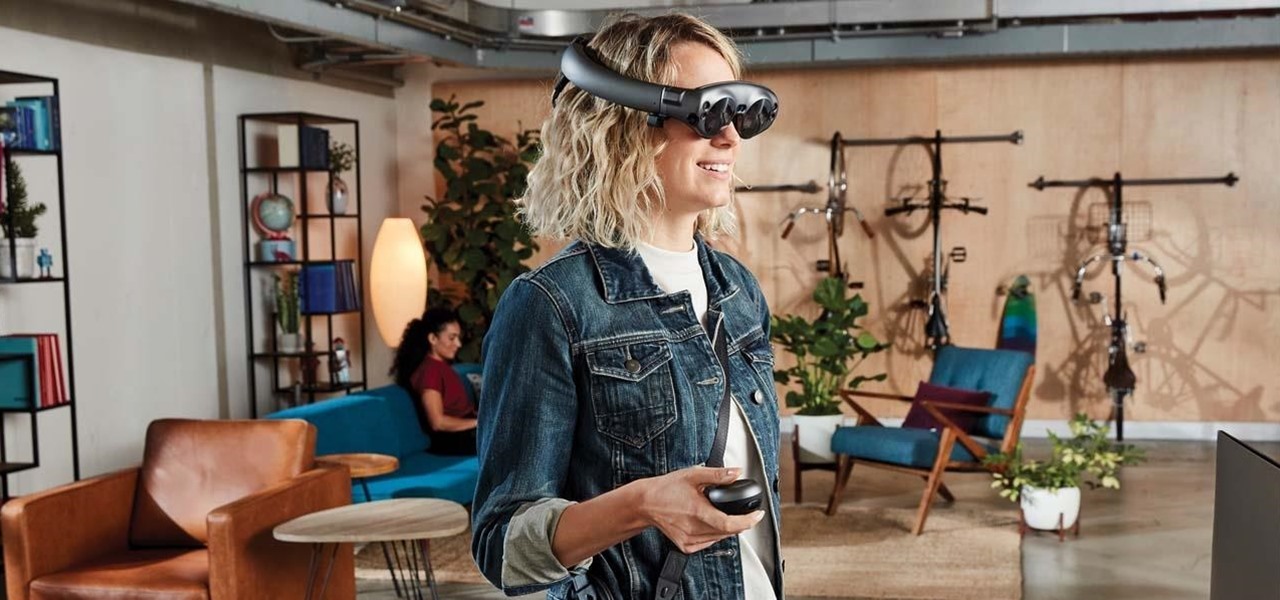


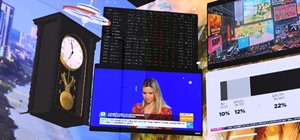
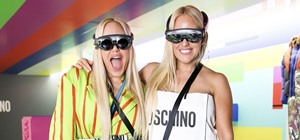
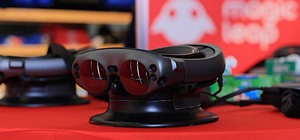
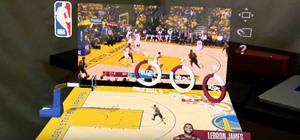
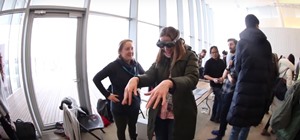
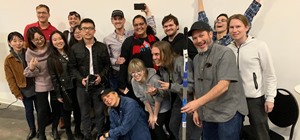
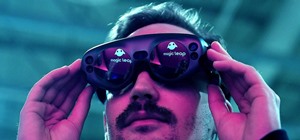
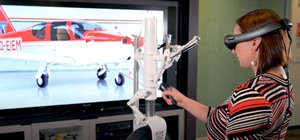

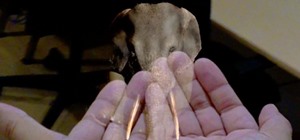

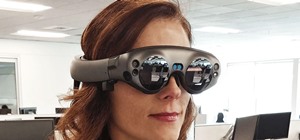

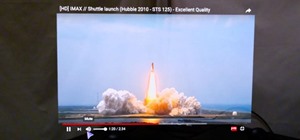
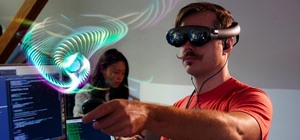
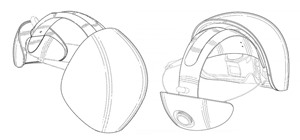
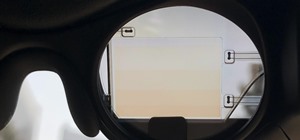

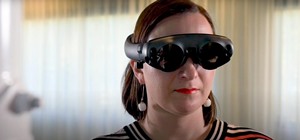

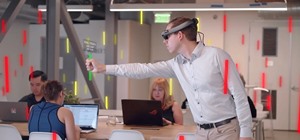

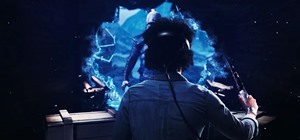
6 Comments
Sorry, what? Remember the awesome video of R2D2&C3PO „Shot directly through Magic Leap Technology"? The first presentation of the ML1 was a lowpoly, jittering, stone throwing creature with bad occlusion. And if the ML1 is state of the art of AR, then AR simply is in a bad state.
No, sir. I didnt bought into the massive hype (whales and stuff) but since the Hololens 1 was launched in 2016, we could've very well hoped for a leap in fov, tracking and peformance. Instead its just incremental. I'm totally not holding my breath for consumer-ready AR but at least there is hope, that Microsoft will launch a much better product soon.
Well, competition is good for all of us I guess ...
"Sorry, what? Remember the awesome video of R2D2&C3PO „Shot directly through Magic Leap Technology"? The first presentation of the ML1 was a lowpoly, jittering, stone throwing creature with bad occlusion. And if the ML1 is state of the art of AR, then AR simply is in a bad state."
The demos honestly did suck. However, have a look at videos of people actually using it, if you haven't already, rather than judging based off of the demos alone.
youtu.be/yx70UpbRzUs
youtu.be/1_d2bZPHkQQ
"No, sir. I didnt bought into the massive hype (whales and stuff) but since the Hololens 1 was launched in 2016, we could've very well hoped for a leap in fov, tracking and peformance. Instead its just incremental. I'm totally not holding my breath for consumer-ready AR but at least there is hope, that Microsoft will launch a much better product soon."
Don't forget that it also has eye tracking and a $700 cheaper pricetag. Two and a half years of technological progress happened in two and a half years. What were you expecting? Were you expecting 100°- 140° FOV with life-like graphics and perfect occlusion? You can expect that in 10 years, but you'd have to be crazy to think that'd be possible today. Did you also expect the N64 to be released less than 3 years after the NES?
It's better than the hololens, smaller, $700 cheaper, and with a few additional features. It hasn't even been three years. What's the issue?
Thanks for your reply Gunnar.
Since I'm not buying it, I can only judge it from what I see. The videos I saw. And I didnt expect your guess of 100-140°FOV. And yes, of course we are 10-15 years away from massmarket AR. But double the FOV of a Hololens1 would have been appropriate (due to Moores law) after Ronys constant boasting how mindblowing his tech is. And from what I read, the tracking is lacking behind Hololens1.
Now I say that, because the next Hololens is „just around the corner". And if that tops FOV, tracking, opacity of objects and meeting the same pricepoint of the ML1, I dont see a real benefit on this device other than its nice to have a competitor alongside Microsoft...
Have you had a chance to try a Project North Star headset yet? I think they have an opportunity to be the Android (read "open") of the HMD world to Magic Leap's walled garden Apple style end-to-end approach.
"the best AR device" , i think the author didnt do his home work. let me compare ml to hlv1 though v2 is coming in 4-5 months.
now this is even HL1 , in which HL2 is coming in 4-5 months with in chip AI,kinect for azure (youtube.com/watch?v=0Ov2PdlBKE0&feature=youtu.be look how advance the occlusion and tracking in the video, 70-80 fov, more compact, cheaper.
Magicleap will be hard pressed to make room for it with the arrival of Apple's glasses, which are already a big step ahead of the acquisition of VRVANA. i guess they're already at stage three of magicleap development in a hololense format
Share Your Thoughts